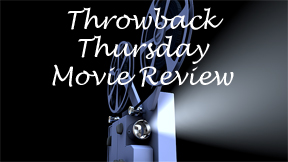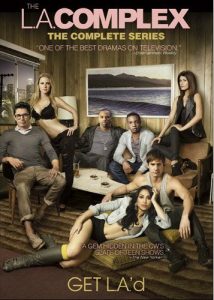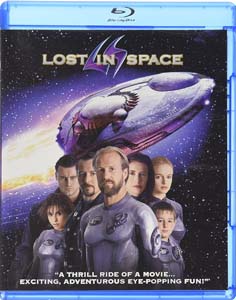I have a soft spot for “Lost in Space” (1998). In retrospect, it’s neat how long “Titanic” stayed at No. 1 at the box office, but in April 1998, I thought it was cool that “Lost in Space” finally ended the streak; I still enjoy pulling out that piece of trivia.
Back then, I was excited about Hollywood’s increasing blockbuster offerings (gradually expanding what used to be a summer-plus-Christmas schedule), and you have to keep in mind that relaunches of old properties were not passé. “Lost in Space” had an air of “Let’s see what they do with it!”
Not interested in being cool
Director Stephen Hopkins (“Predator 2”) and writer Akiva Goldsman (“Batman & Robin”) aren’t interested in making “Lost in Space” “cool,” they are interested in updating the special effects and sets, yet being true to Irwin Allen’s TV 1965-68 series. (For the newer brand of “Lost in Space” remake, see the 2018 streaming series.)

“Lost in Space” (1998)
Director: Stephen Hopkins
Writer: Akiva Goldsman
Stars: Gary Oldman, William Hurt, Matt LeBlanc
Technically, the film has both impressive and unimpressive parts. The set of the planet the Robinsons get lost on has some of the foam-rubber feel of the TV show – which was goofily imaginative whereas its successor “Star Trek” was brainy — but in a colorfully stylized way.
The action sequences are exciting and unpredictable, with Bruce Broughton’s score communicating that this is a fun serial adventure.
On the other hand, the creature named Blawp (on IMDb) or Blarp (in the subtitles) isn’t perfected. The filmmakers switched from an animatronic puppet to CGI during production, and let’s just say the puppet must’ve been really bad in order for the CGI to be preferable.
Fun for kids
Aside from a few awkwardly staged moments, “Lost in Space” shows Hopkins is capable of big-budget filmmaking (although that didn’t pan out; he switched over to a successful TV career). But Goldsman’s writing is what especially makes this a film kids will eat up and adults might find tolerable.
While there are cheesy lines (Matt LeBlanc is forced to say things like “Showtime!” as Major West), I wonder if those are for the sake of the end-credits dance track. Goldsman otherwise writes lots of great banter and one-liners, spreading them among the cast. He also makes references to the TV show (“Danger, Will Robinson!,” etc.) without being cheesy.
“Lost in Space” is a likable, if simple, family film. We get the dad (William Hurt’s John Robinson) who is too work-centered; the mom (Mimi Rogers’ Maureen) who serves as a mediator; the older daughter (Heather Graham’s Judy) who takes after her dad; the younger daughter (Lacey Chabert’s Penny) who undergoes a G-rated teen rebellion; and son Will (Jake Lloyd … I mean, Jack Johnson), whose robotics genius is overlooked. All have roles on the Jupiter 2.

Standout performances
Gary Oldman has the thankless role as villainous Dr. Smith, but he’s Gary Oldman, so he’s not annoying. A nod also goes to Dick Tufeld as the voice of the Robot that looks like a “Star Wars” Destroyer Droid (four years before that style of droid was introduced in “Attack of the Clones”) – commanding but also amusing when young Will is remote-controlling him.
“Party of Five’s” Chabert is worth an extra shout-out. With her high-pitched voice and hairstyle that she has determined “will be in style in 10 years” (the period of their cryo-sleep), Penny especially seems like teen from the future. (It’s 2058, to be precise. The human race has used up Earth’s resources, yada yada yada, hence the colonization mission.)
Granted, Penny’s vlog recordings seem more 2010 than 2058, but viewed in 2021, it plays like she’s into retro-tech.
A weird ending
The time-jump stuff in the final act tries to get by with hand-waving more so than science, and it feels less weighty than similar threads in, say, the “Planet of the Apes” or “Terminator” pictures.
Generally solid actor Jared Harris, as Future Will, comes off as weirdly flat in this sequence, and some quick internet research reveals it’s because his lines were dubbed by another actor for an unknown reason that has to be indefensible.
So there’s no question that “Lost in Space” has its flaws. But the tidy character arcs and the Robinsons’ sense of family shines through.
And it stands as a time capsule of an era when remakes were interested in updating the special effects but not changing the purpose or feel of the product.
It’s not a space-opera masterpiece, but it does tap into the spirit of superior works like “Valerian” and “Star Wars.” “Lost in Space” is so widely dismissed that if you haven’t seen it for a while, or have never seen it, you might find it to be pleasantly not-too-bad.

